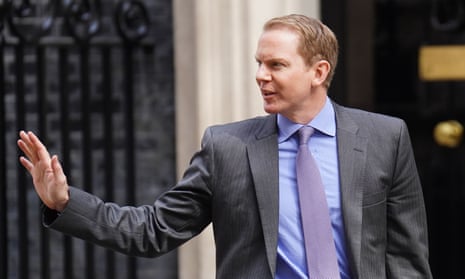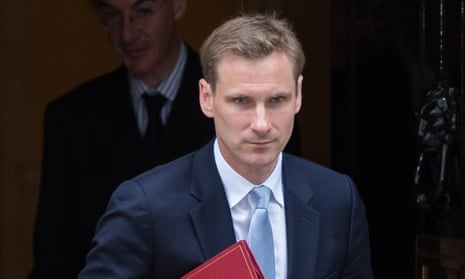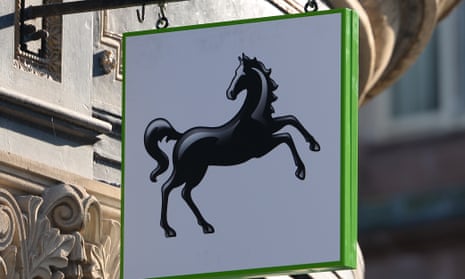Nigel Farage calls for more leaders to go after NatWest boss resigns
Good morning, and welcome to our live coverage of business, economics and financial markets.
Nigel Farage has called for more people to resign from NatWest Group following the dramatic resignation of its chief executive, Alison Rose, amid a row over his account at the Coutts private banking subsidiary.
Rose resigned as chief executive of NatWest Group, the FTSE 100 bank, early on Wednesday morning after admitting to sharing information about Nigel Farage’s bank account to the BBC.
The board of the partly state-owned bank, which was formerly known as Royal Bank of Scotland, met late on Tuesday night to discuss her future, after having said she had the full confidence of the board earlier that day.
In a statement released on Wednesday morning, the NatWest Group chairman, Sir Howard Davies, said:
The board and Alison Rose have agreed, by mutual consent, that she will step down as CEO of the NatWest Group. It is a sad moment.
She has dedicated all her working life so far to NatWest and will leave many colleagues who respect and admire her.
In a statement of her own, Rose thanked her colleagues “for all that they have done”, adding:
I remain immensely proud of the progress the bank has made in supporting people, families and business across the UK, and building the foundations for sustainable growth.
NatWest’s board of directors also announced that Paul Thwaite, the chief executive for commercial and institutional business, would take over Rose’s responsibilities for an initial period of 12 months, pending regulatory approval. The board said in a statement that appointment of a permanent successor would take place “in due course”.
We will have all of the reaction to the news throughout the day.
Key events
Grant Shapps calls for banks to ease political exposure tests
Energy minister Grant Shapps has said that banks should stop carrying out politically exposed person (PEP) tests on politicians and their family members, adding to the calls for changes in how banks check clients.
Shapps on Wednesday morning said that the tests, which are in place because of a heightened risk of corruption for politicians from around the world and those with close connections, had gone too far.
As someone referenced in the Coutts dossier used to outrageously remove banking facilities from Farage, I welcome the NatWest/Coutts CEO stepping down. However, it’s equally important banks stop applying political (PEP) tests to people (& families) opening new bank accounts too.
— Rt Hon Grant Shapps MP (@grantshapps) July 26, 2023
It is a fairly unusual situation for politicians to be concerned about there being too many anti-corruption tests, rather than too few.
Here is a handy explainer for anyone who wants to catch up on how banking regulations could change:
If you don’t want to click through:
Banks have a legal obligation to monitor their clients’ account, and to make risk assessments based on the information they have gathered. Politically exposed persons – individuals who because of their roles as public officials are deemed to carry a higher risk of bribery or corruption – require additional supervision.
Banks can also monitor any negative media coverage of their customers, as well as social media accounts and credit data, but this is usually meant to identify people who could potentially carry out a criminal act.
Coutts’ internal report said the bank was concerned about Farage’s “xenophobic, chauvinistic and racist views” and believed maintaining his accounts posed a reputational risk. The report highlighted his ties to politicians such as Donald Trump, and his views on issues including migration and Russia. It said some of Farage’s comments were “not in line with our views or our purpose”.
Lloyds boss: ‘We don’t consider customers’ political views’

Kalyeena Makortoff

The chief executive of Lloyds Banking Group has said the bank does not consider “their political or personal beliefs” when closing customers’ accounts.
Speaking to reporters on Wednesday morning, Lloyds chief executive Charlie Nunn said that it would “not be appropriate for me to comment around what the NatWest board and Alison has gone through,” but extended respect to his now-former Big Four banking rival.
I would just say, I’ve really respected Alison as a role model in financial services. Some of the leadership, especially around topics like sustainability and female entrepreneurs, has been great, and I’ll miss her in that context.
With respect to Lloyds Banking Group, we’re very clear that our policy on what choices and information we use when we onboard a customer or when we look at closing a customer’s account doesn’t include any consideration of their political or personal beliefs. And so we’re very comfortable that’s the right policy for Lloyds Banking Group.
Nunn said he’d been invited to the meeting being hosted by the City minister regarding bank account closure policies this morning, but would be sending a colleague in his place given he was tied up with second quarter financial results. “But we’lll obviously look forward to engaging the government and following up on any actions that are agreed coming out of that,” he added.
Minister: Bank approach to checking political links ‘needs correcting’

The City minister, Andrew Griffith, is due to meet bank bosses today to discuss the Farage row, and other Conservative MPs have raised the prospect of changing banking rules to bar them from considering clients’ political views.
Chris Philp, the policing minister, on Wednesday said that banking practices “need correcting”, although it is unclear what form changes would take.
The government could ask regulators to amend regulations, although some MPs, and Nigel Farage, have called for legislation, which would take longer.
It is a question of free speech and political freedom. Banks have also more widely been overzealously interpreting the PEP rules [politically exposed person rules] which meant many MPs have had trouble getting access to financial services, and even MPs’ families as well, spouses and children even. So they have been a bit overzealous, I think, and it does need correcting.
But the Nigel Farage case was I think particularly bad because it was based on lawful political beliefs, and as I said no one should be discriminated against in the United Kingdom because of their lawful, political beliefs.
There are wider issues here as well concerning banks potentially not providing banking services to people because of their lawful political views. That is completely wrong. We believe in free speech in this country, we believe in political freedom, and that means no one should be denied banking services, which are critical in a modern society, simply because of their lawful, political beliefs.
Philp has also held roles – very briefly indeed – chief secretary to the Treasury under former chancellor Kwasi Kwarteng, before the rapid collapse of former prime minister Liz Truss’s government. He also said Rose was right to resign.
There were very deep concerns in government about what had happened here because Alison Rose, it appears, did in fact disclose confidential client information about Nigel Farage… It turns out that information is inaccurate and I think it is therefore absolutely right that she has resigned.
Andrew Griffith earlier said:
I hope the whole financial sector learns from this incident. Its role is to serve customers well and fairly – not to tell them how or what to think.

Nigel Farage has said the NatWest board endorsed “a plain untruth” on Tuesday, shortly before government intervention forced Alison Rose to resign from the bank.
The first rule of banking is client confidentiality. She clearly broke that. She was the source of the leak, and if anybody in a more junior position had done that, they would have been out the door.
Yet we got this extraordinary statement, that came at a quarter to six last night, that said, yes, she breached client confidentiality, but we the board still have confidence in her.
There was a straight conflict between what the BBC said and what she said. Somebody wasn’t telling the truth.
He also said that he has heard about “tens of thousands” of bank account closures, mostly from the owners of small businesses.
I am far from alone. Many other people have come forward to say they’ve been shut out because of what they stand for and what they believe. Now the banks are working on monitoring the social media of every single one of us. And that needs to be stopped, that needs to be stopped stone dead.
Farage also praised the government for stepping in to the NatWest controversy. He said:
The government reaction to this in the last week has been superb.
Lloyds Banking Group profits hit by gloom over UK economy

Kalyeena Makortoff

This is why bank shares have dragged down the FTSE 100 in early trades this morning: a slump in profits at the UK’s biggest high street bank.
Profits for Lloyds Banking Group tumbled 29% in the three months to June, as it prepared for an increase in customers falling behind on costly loan and mortgage payments because of rising interest rates.
Lloyds, which is UK’s largest mortgage lender and owns Halifax, said pre-tax profits fell to £1.6bn in the second quarter. That marked a drop from £2.3bn a year earlier, and was slightly slower than average analyst estimates for £1.7bn.
While the bank’s net interest margin – which accounts for the difference between what is charged for loans and mortgages and what is paid out for savers – was broadly flat at £3.5bn, the bank’s profits were hit by its predictions for the British economy.
The lender said that although its own economists were expecting “stronger” GDP growth compared with six months ago, that was offset by fears that higher interest rates would lead to “increased losses”. It put aside £419m to cushion the blow of any potential defaults, where mortgage or loan borrowers fall behind, or potentially default, on their payments.
NatWest Group shares have fallen by 2.2% in the opening minutes of trading on the FTSE 100.
However, it appears that it may be economics driving the move rather than the resignation of Alison Rose: the biggest faller on the FTSE 100 is rival Lloyds Banking Group, which is down 2.9%.
Nigel Farage has called for legislation to prevent banks considering political views when making decisions on who can hold an account – while also taking a swipe at the pro-LGBT+ marketing campaigns Coutts has previously run.
Speaking this morning to his employer, GB News, Farage said:
The government, being a 36% shareholder in this bank, along with other major investors, needs to appoint a new temporary board to take control of this bank, and then what we need to do is, starting very early in the autumn, is to put in place legislation that says banks cannot and must not discriminate against customers because they support Brexit or they don’t think putting rainbow flags on the front of the bank is right.
We need to address the money laundering regulations that have effectively become the sledgehammer to miss the nut. It’s the innocent that are getting hurt, whilst the big-time crooks still get away with it.
Farage also declined to attack the BBC for its initial report that the account closure was made for commercial reasons, saying that “any journalist” would have published its account, and adding that a later statement from the head of BBC News was accurate and fair. He said:
I don’t think the BBC now come out of this badly. I think Alison Rose and the NatWest board come out of this terribly.
A small point: the government owns 39% of NatWest Group, according to the bank’s website.
City minister: ‘It is right that the NatWest CEO has resigned’

The minister in charge of overseeing the UK’s financial services has said that “it is right” that Alison Rose has resigned from NatWest Group, calling the closure of Nigel Farage’s bank account “unacceptable”.
Andrew Griffith, the City minister, said the resignation “would never have happened” had NatWest Group’s subsidiary, Coutts, not withdrawn the account “due to someone’s lawful political views”.
The crisis for NatWest Group over the closure of Nigel Farage’s Coutts bank account spiralled after the government, its largest shareholder, expressed its disapproval.
The government has been the largest shareholder since the financial crisis, when it bailed out the bank, formerly known as Royal Bank of Scotland. That 39% shareholding gives ministers much more direct influence than at most other UK banks.
It is right that the NatWest CEO has resigned.
This would never have happened if NatWest had not taken it upon itself to withdraw a bank account due to someone’s lawful political views. That was and is always unacceptable.
I hope the whole financial sector learns from this… https://t.co/W4i3WYgeyX
— Andrew Griffith MP (@griffitha) July 26, 2023
Nigel Farage this morning said that “others must follow” after NatWest Group boss Alison Rose resigned as chief executive of the FTSE 100 bank.
Farage first complained last month that his bank account at Coutts, the expensive and exclusive private bank that famously used to count Queen Elizabeth II among its clients, had been closed. He said that it was closed because of his views.
The BBC then reported that his account was closed for commercial reasons, citing a very senior source at the bank – a briefing that was then confirmed by other sources. However, Farage used a subject access request (a right that was first afforded under EU data protection legislation) to obtain the bank’s information about himself. That showed that Coutts had also considered Farage’s political views before closing the account.
The former right-wing politician turned broadcaster on the GB News channel, said he hoped the resignation “served as a warning to the banking industry”.
Dame Alison Rose has gone. Others must follow.
I hope that this serves as a warning to the banking industry.
We need both cultural and legal changes to a system that has unfairly shut down many thousands of innocent people.
I will do my best to be their voice.
— Nigel Farage (@Nigel_Farage) July 26, 2023
Nigel Farage calls for more leaders to go after NatWest boss resigns
Good morning, and welcome to our live coverage of business, economics and financial markets.
Nigel Farage has called for more people to resign from NatWest Group following the dramatic resignation of its chief executive, Alison Rose, amid a row over his account at the Coutts private banking subsidiary.
Rose resigned as chief executive of NatWest Group, the FTSE 100 bank, early on Wednesday morning after admitting to sharing information about Nigel Farage’s bank account to the BBC.
The board of the partly state-owned bank, which was formerly known as Royal Bank of Scotland, met late on Tuesday night to discuss her future, after having said she had the full confidence of the board earlier that day.
In a statement released on Wednesday morning, the NatWest Group chairman, Sir Howard Davies, said:
The board and Alison Rose have agreed, by mutual consent, that she will step down as CEO of the NatWest Group. It is a sad moment.
She has dedicated all her working life so far to NatWest and will leave many colleagues who respect and admire her.
In a statement of her own, Rose thanked her colleagues “for all that they have done”, adding:
I remain immensely proud of the progress the bank has made in supporting people, families and business across the UK, and building the foundations for sustainable growth.
NatWest’s board of directors also announced that Paul Thwaite, the chief executive for commercial and institutional business, would take over Rose’s responsibilities for an initial period of 12 months, pending regulatory approval. The board said in a statement that appointment of a permanent successor would take place “in due course”.
We will have all of the reaction to the news throughout the day.
Stay connected with us on social media platform for instant update click here to join our Twitter, & Facebook
We are now on Telegram. Click here to join our channel (@TechiUpdate) and stay updated with the latest Technology headlines.
For all the latest Business News Click Here
